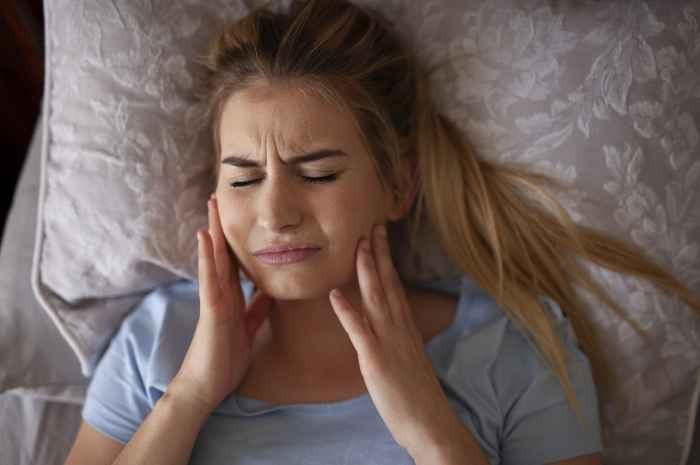
Bruxism: what are the symptoms?
It may happen that you wake up with soreness of the facial muscles, dry mouth or discomfort in the ears. These sensations are some of the symptoms of nocturnal bruxism
The stress we experience every day in our daily lives and a sedentary lifestyle can lead to teeth grinding, i.e. the movement of rubbing the upper arch against the lower one, or clenching them involuntarily during sleep.
Sometimes the symptoms are obvious, others it is the partner who notices the contraction of the chewing muscles during the night.
Bruxism: the causes
In most cases, bruxism is multifactorial, i.e. it does not have a single trigger, but a coexistence of several factors, such as:
– Sleep disorders;
– stress, anxiety and nervousness;
– mood disorders;
– sedentariness;
– alcohol abuse or smoking.
Understanding the causes of one’s teeth grinding or clenching allows one to address and treat this condition that can last for years if left untreated, and create damage to the mouth and chewing joint.
Symptoms of bruxism
The symptoms of bruxism vary in intensity and type from case to case.
Symptoms are related to the type of strain the masticatory muscle undergoes, i.e. clenching or grinding of the teeth.
Symptoms of bruxism are:
– masticatory muscle fatigue and jaw joint stiffness;
– wear of tooth enamel. The constant pressure exerted by clenching teeth can lead to thinning of the enamel, which in severe cases can even lead to tooth breakage;
– wear of the teeth, which may shrink and become flat and sharp;
– pain in areas connected to the masticatory joint, such as the head, ears and neck;
– dry mouth.
It goes without saying that treatment for bruxism must be agreed upon with one’s professional and varies from case to case.
Read Also:
Emergency Live Even More…Live: Download The New Free App Of Your Newspaper For IOS And Android
Obstructive Sleep Apnoea: What It Is And How To Treat It
Grinding Your Teeth While You Sleep: Symptoms And Remedies For Bruxism
Long Covid And Insomnia: ‘Sleep Disturbances And Fatigue After Infection’
Sleep Disorders: The Signs Not To Be Underestimated
Sleepwalking: What It Is, What Symptoms It Has And How To Treat It
Migraine And Tension-Type Headache: How To Distinguish Between Them?
Grinding Your Teeth While You Sleep: Symptoms And Remedies For Bruxism
Snoring: When Does Sleep Apnoea Become A Danger To Be Faced?


